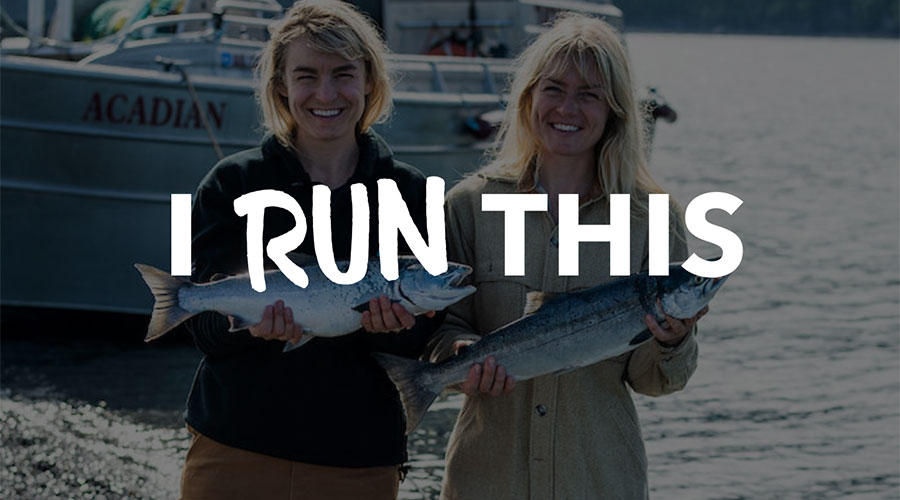What is it like working in an industry that some might see as traditionally male-dominated? Have you come up against any bias?
There are many women involved in Alaska’s fisheries, though the industry is traditionally male-dominated. Some of these women have been our biggest role models over the years and many of the female peers we grew up with are captains of their own boats and have all-women crews. It seems that more and more young women are fishing with their families, whether they’re working during summers off from school, or starting a life working with their partners.
In general, there is an understanding in Alaska’s fisheries that women are just as capable, quick, and skilled as men are on deck—thanks to the tough ladies who paved the way and set an example for younger generations. As women working on the water, however, we are always rooting for each other out of admiration and commiseration for the experience we share. This is one of the most rewarding parts of our business—offering a community platform to share fishing stories and celebrate our fellow salmon sisters.
Is there anything you want other women to know about working in your industry?
If you want to try fishing, find the right boat, captain, and crew. Get referrals from other women in the industry, find a mentor to answer questions, and do your research to know what kind of world you’re stepping into. Fishing can be intense and challenging work, both physically and mentally, but on the right boat and with the right people, it’s rewarding and fun.
There are also many opportunities in the fishing industry off the water that are a good place to get to know the industry. Marine trades, marine biology, resource management, and seafood processing are all sectors that give a glimpse at the ecosystem of our industry.
What advice would you give to other women starting their own business?
Take advantage of the resources available for starting small businesses in your local community. Take the time to write a business plan. Get help immediately with book keeping and financials so you know your numbers and can make adjustments when something isn’t working. Build systems so you can grow your team and teach people why you do it the way you do it.














